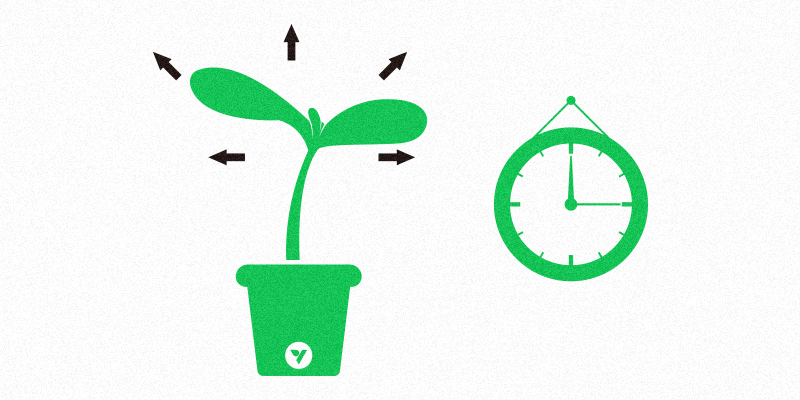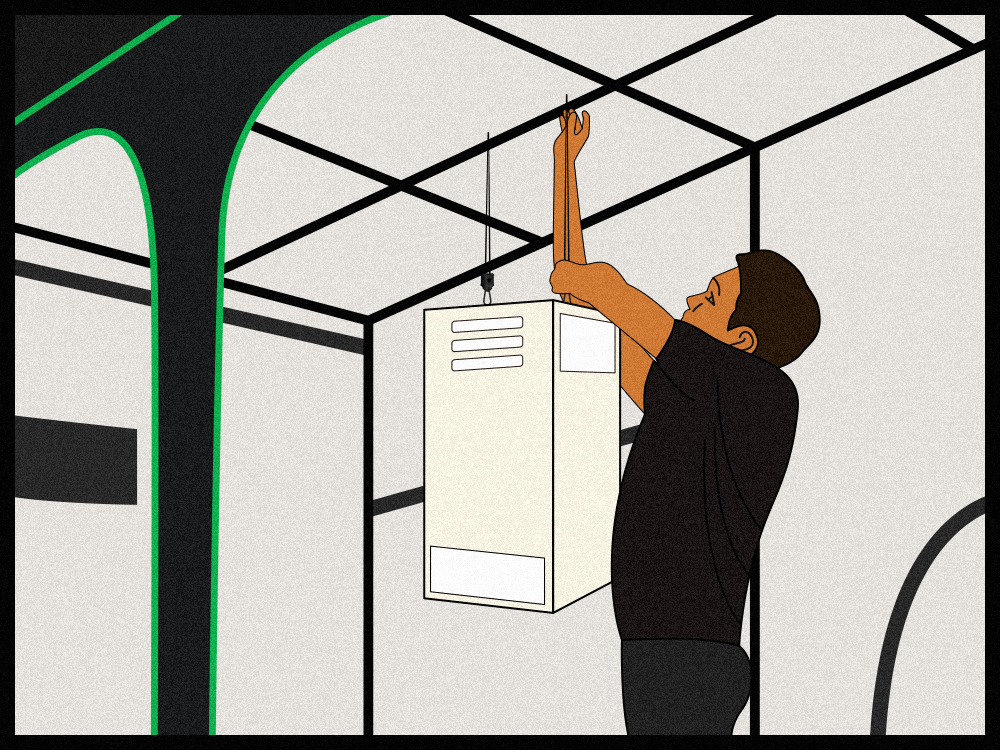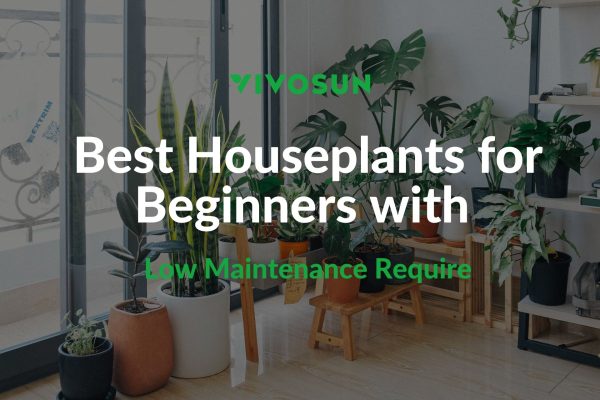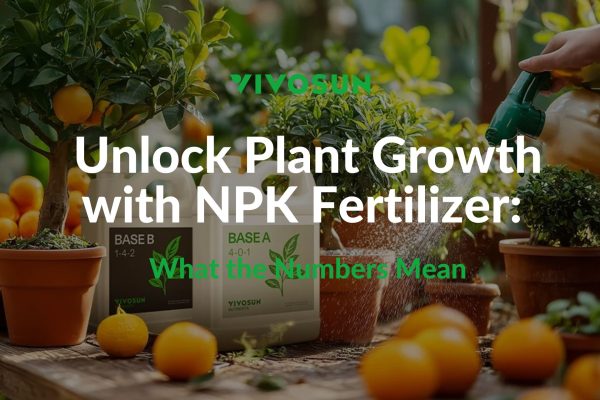More and more farmers are boosting plant growth and getting larger yields by adding CO2 to their plants. Under the same conditions, the yield of the spaces with added CO2 is consistently higher than that of spaces without extra CO2—how great this improvement is varied by setup and experience. So can adding CO2 have the same effect when we clone plants? The answer is yes. Although we have fewer plants when cloned, they still benefit from the addition of CO2.
Benefits of adding CO2
Faster rooting

We know that cloning is the re-growing of shoots cut from a parent plant. An important indicator of successful cloning is rooting, which means that the cloned plant is becoming a complete plant. Adding CO2 to cloned plants will encourage them to root faster.
But it should be noted that CO2 is not added to the roots of the plant, but to the leaves of the plant because you add CO2 by “injecting” it into the air. Providing the leaves with CO2 speeds up photosynthesis and produces sugars in the process, an important source of energy for rooting. That said, adding CO2 can encourage the production of sugar, which in turn allows for faster root growth and thus faster access to the vegetative stage.
Reduce water loss
Cloned plants need to be in a high-humidity environment because the cuttings have no roots and can only store moisture in leaves. If they are in a standard cannabis environment the moisture in the leaves will evaporate quickly, which will cause the branches to wither or even die from lack of water.
Plants absorb CO2, as part of the process of photosynthesis, by opening their stomata. At the same time, the pores are open, and water will evaporate. Some experiments have proved that adding air enriched with CO2 to your plant’s environment will encourage your plants to open their stomata smaller, which can effectively reduce the transpiration of water. This is undeniably very useful for cloning.
Avoiding pathogens
As we said above, cloned plants need to be in a high-humidity environment. High-humidity environments tend to breed various bacteria, molds, etc. This is of course very detrimental to the growth of cloned plants. Adding CO2 to them can effectively prevent the infestation of plants by various pathogens.
Indeed many products for the prevention or treatment of fungal diseases work by changing the pH of the plant so that certain pathogens cannot attach to the plant. In this regard, CO2 can provide the same effect. CO2 is naturally anti-pathogenic because when you add CO2 to the leaves, it also changes the pH of the leaves. Compared with those bactericidal products, CO2 has more preventive effects.
So how do you add CO2 to your clone?
We have several ways to add CO2 to plants: CO2 burners, compressed CO2 tanks, or suspendable bags, all of which can be used in cloning. But we need to pay attention to a few things.
- Avoid high concentrations of CO2. For cloning, it is best to maintain CO2 concentration levels at 1000-1300 Parts Per Million (PPM). Too high of CO2 concentration means too low oxygen concentration—oxygen is also very important for plants, especially for root growth. You’d better use a CO2 controller to monitor the concentration of CO2 in the air to avoid this.
- Be sure to pay attention to air circulation. If you don’t have CO2 for your clone then your ventilation won’t have much effect even in general. But in the case of high CO2 concentration, you must ensure that you have very good ventilation, otherwise, your cuttings will turn yellow and soft, or even die.
- If you are very interested in adding CO2 during the cloning period, you can try to choose a CO2 pad. CO2 mats are made with natural chemicals. It automatically releases CO2 when exposed to humidity. This mat is made for cloning and propagation trays.
Wrap-up
Not many people add CO2 during cloning compared to adding CO2 in a normal grow room. But that doesn’t mean it’s useless. Throughout our long growing careers, there is always something new to try to make our growing more interesting.
If you have any questions, please don’t hesitate to reach out to us!
And be sure to check out our other blog posts for useful tips on becoming a great grower!
Subscribe to the VIVOSUN newsletter for growing tips, grower stories, and special offers, and get 12% off your first order!
We love the new VIVOSUN Smart Grow System and we are certain that you too will love it once you try it.
And join our Facebook farmer’s community for even more exclusive contests and prizes!
Download VIVOSUN App to get 18% off and explore more information!









